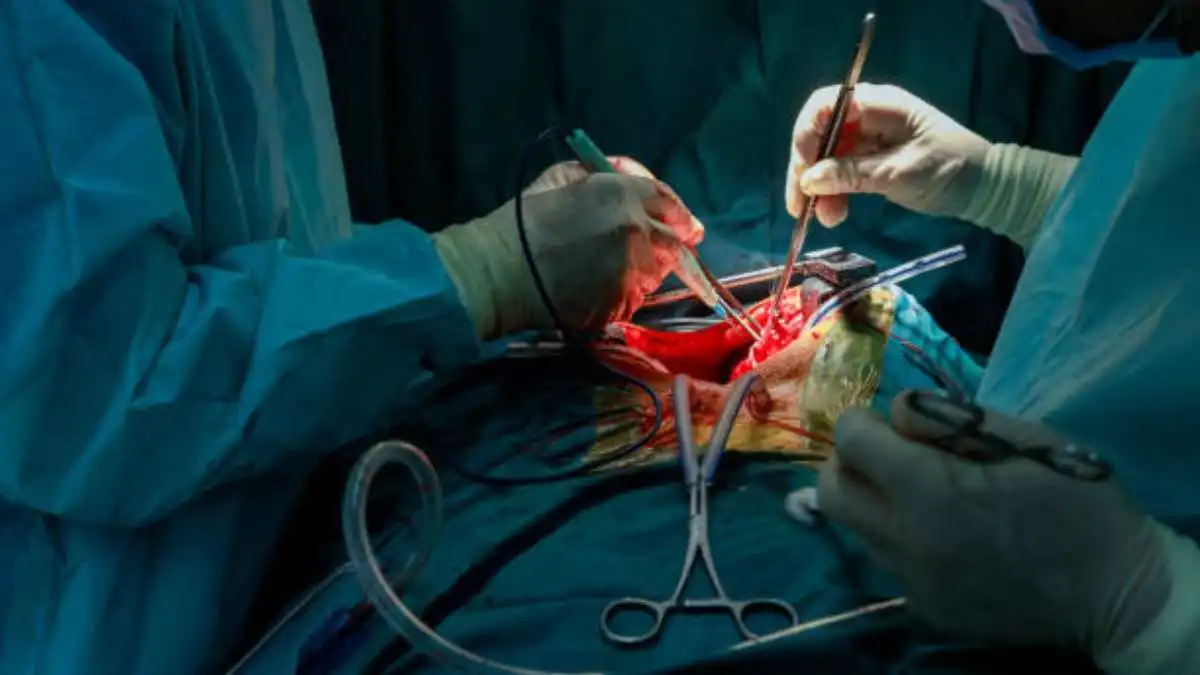HEALTH AND FITNESS
Impact of Whipple Surgery on Long-Term Quality of Life

Whipple surgery, also known as pancreaticoduodenectomy, is a complex and highly specialized procedure performed to treat conditions such as pancreatic cancer, tumors in the pancreas, and certain diseases of the bile ducts and duodenum. This surgery involves removing a portion of the pancreas, duodenum, bile duct, and occasionally part of the stomach. Given the complexity of this surgery, it’s natural for patients and their families to wonder about the long-term impact it may have on the quality of life.
In this article, we will explore how Whipple surgery affects patients in the long term and what they can expect in terms of health, lifestyle, and recovery.
Table of Contents
Physical impact and digestive health
One of the primary concerns after undergoing Whipple surgery is the effect on the digestive system. Since part of the pancreas, duodenum, and bile duct are removed, patients may experience significant changes in digestion. The pancreas plays a crucial role in producing enzymes that help break down food, particularly fats and proteins. After surgery, many patients need to take pancreatic enzyme replacements to aid digestion and prevent malnutrition.
Additionally, the removal of the duodenum can lead to changes in how food is processed in the intestines. Some patients may experience issues such as diarrhea, bloating, or difficulty absorbing certain nutrients. However, with appropriate dietary adjustments and medical support, these issues can often be managed effectively.
Impact on weight and nutrition
Post-surgery, patients might find it challenging to maintain a healthy weight. Since the surgery can affect the way the body absorbs nutrients, it’s not uncommon for patients to experience weight loss or difficulty gaining weight. A tailored diet plan, often supervised by a nutritionist, can help manage these challenges. The goal is to ensure patients receive enough calories and nutrients, even if they experience changes in appetite or digestion.
Mental and emotional health
The psychological impact of undergoing Whipple surgery is profound. The stress of dealing with a major surgery, the recovery process, and the uncertainty of living with a significant health condition can lead to feelings of anxiety and depression. Many patients also face the challenge of adjusting to life after surgery, which can impact their mental health.
Support from family, friends, and healthcare professionals, including mental health counselors, can play a key role in helping patients cope with these emotional challenges. Additionally, some patients find strength in connecting with others who have undergone similar experiences, which can provide a sense of solidarity and support during recovery.
Physical activity and lifestyle adjustments
After Whipple surgery, patients are encouraged to gradually return to normal physical activity. However, the timeline for resuming physical activities varies from patient to patient and depends on individual recovery progress. It’s essential for patients to listen to their bodies and follow the guidance of their healthcare providers when it comes to exercise and activity levels.
Some patients find that they are able to resume most of their regular activities, while others may need to make adjustments, particularly in the early stages of recovery. For instance, some may find they tire more easily or need to take breaks throughout the day. These lifestyle changes, while initially challenging, can lead to a greater understanding of one’s body and capabilities.
Whipple surgery at affordable price: A global option
For those considering Whipple surgery, the cost can be a significant factor in decision-making. Many patients seek affordable options for this complex procedure, especially as healthcare costs can vary significantly across different regions. Whipple surgery at affordable price options in countries like Turkey, India, and Mexico have become increasingly popular for international patients looking for high-quality treatment without the financial burden of procedures in their home countries. These destinations offer skilled surgeons, state-of-the-art medical facilities, and comprehensive care packages, making them attractive choices for those seeking affordability without compromising on care.
Conclusion
Whipple surgery can significantly impact a patient’s quality of life in both positive and challenging ways. While the recovery process can be complex, with adjustments to digestion, nutrition, and lifestyle, many patients find that they are able to lead fulfilling lives with the right support and care. Mental health, physical activity, and ongoing health monitoring play crucial roles in the long-term success of recovery.
With access to Whipple surgery at affordable price options in select global destinations, including specialized doctors in Turkey, patients can now seek the surgery they need without the overwhelming costs typically associated with such a life-changing procedure. If you or a loved one is considering Whipple surgery, it’s important to consult with healthcare professionals to understand the full scope of the procedure, the recovery process, and the long-term impacts on health and well-being.
-

 GENERAL2 months ago
GENERAL2 months agoUncovering the World of кинокрадко: The Dark Side of Film Piracy
-

 GENERAL1 month ago
GENERAL1 month agoUnveiling the Art of преводсч: How Translators Bridge Language Barriers
-

 YOGA1 year ago
YOGA1 year ago4 Person Yoga Poses for Beginners
-

 GENERAL3 weeks ago
GENERAL3 weeks agoChristofle – For Those Who Dream of Family Heirloom Silver


























